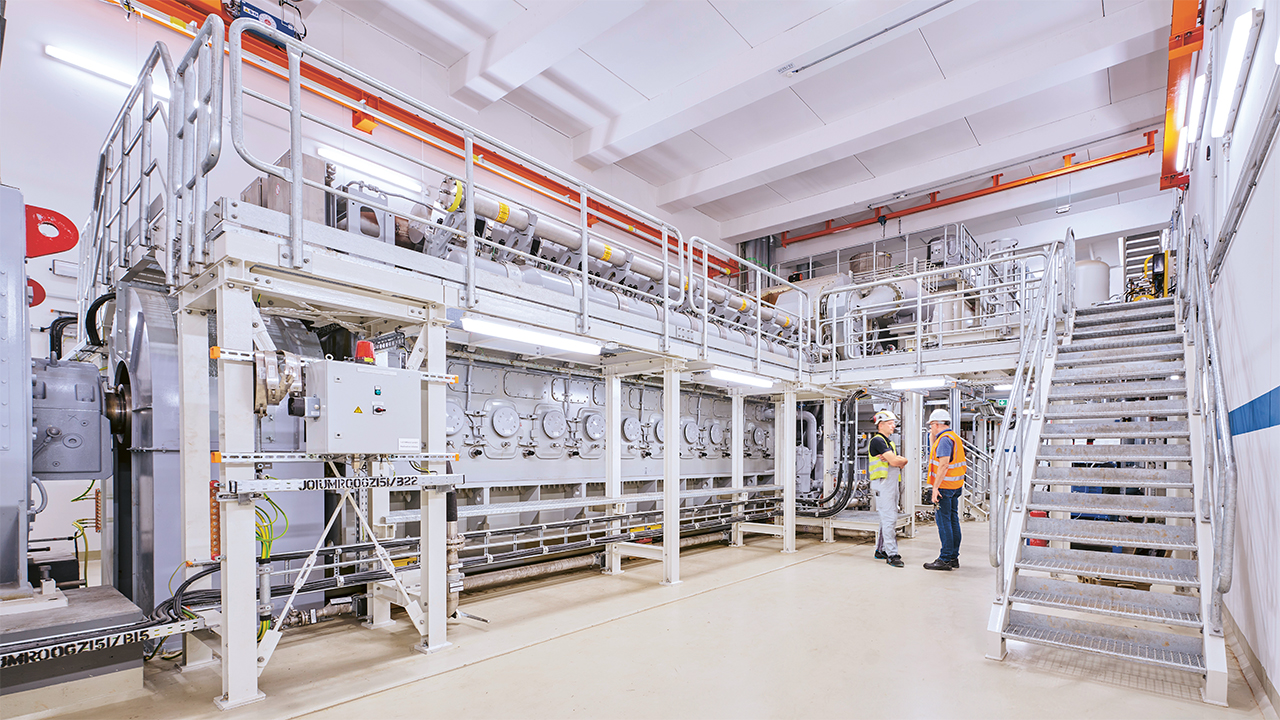Gas power plants can provide backup for renewable energies, yet investments in this type of energy generation have faltered in recent years. What are the reasons for this and how will the market evolve?
`Dunkelflaute’, sometimes translated as ‘dark doldrums’, is a wonderful German coinage that succinctly sums up the drawbacks of renewable energies. Where will the electricity come from when the sun is not shining and the wind is not blowing? From gas power plants, for example, according to Martin Höhler (Head of Region Europe Power): “These power plants have fast response times and can be started up very rapidly when the need arises. They can be shut down just as rapidly when the renewables supply enough energy.” It sounds great, but why are gas power plants so thin on the ground in Germany? One reason is the continuing great uncertainty in the industry regarding whether it makes sense to keep relying on natural gas as a fuel. In addition, the Federal Government has so far failed to come up with a power plant strategy that gives the operators security of investment. Such a strategy now exists in outline. About time too if coal-fired power generation is to be phased out entirely by 2030.

A total of seven MAN 20V35/44G TS engines, each with an electrical output of 12.6 MW, are in operation at the Chemnitz-Nord power plant
CHP facilities as a reference for standby power plants
The advantages of gas power plants are obvious: they have low emissions and are flexible to operate. Engines are also more efficient than turbines. Which is why MAN Energy Solutions experienced something of a glut of orders for gas power plants in Germany up until 2019. Although the projects in Schwäbisch Hall, Jena, Chemnitz and Frankfurt an der Oder are combined heat and power facilities, Martin Höhler is confident that they could also serve as a reference for the standby power plants that are now needed. “These projects gave us a lot of experience that we can incorporate in new plants. The power plants in question are at a very high level both qualitatively and technically, and they show what we are capable of. The feedback we’ve received from customers who have visited the plants has been positive without exception.”
100 percent hydrogen planned for the future
An important requirement when it comes to approval for new gas power plants is that they will have to be able to run on hydrogen instead of natural gas prospectively. According to Höhler, MAN Energy Solutions is geared up for this too: “Our engines can already run with the admixture of 25 percent hydrogen. We want to keep increasing this percentage. We are working on H2 certification so that our customers will be able to make a future-proof investment right now.”
Chances good for MAN Energy Solutions
As things stand, far from all the framework conditions for operators and investors have been finalized in the power plant strategy, making it difficult to calculate a business case. After all, standby power plants do not run all the time, but only step in when there is a ‘dunkelflaute’. In other words, the operator does not make any money during downtimes. Martin Höhler is nevertheless sure that gas power plants will become increasingly important as a partner for renewable energies: “Energy generation from fossil fuels is definitely going to be phased out, accompanied by increased expansion of renewables. This boosts our chances of further increasing our market shares for gas power plants going forward. That’s why we’re already keeping an eye on invitations to tender and getting our technologies and solutions ready for action.
Gas power plants have fast response times and can be
started up very rapidly when the need arises. They can be shut down just as rapidly when the renewables supply enough energy.
Explore more topics
Gas engines for the energy transition
Renewable synthetic fuels like synthetic natural gas and methanol are pivotal in decarbonizing the economy, with potential applications in industrial processes, chemical manufacturing, shipping and much, much more. Discover takes a peek inside the processes and technologies that are helping to bring these fuels to the world.
-

Better than reality
As a virtual and augmented reality developer at the Augsburg site, Carolin Lirsch sees to it that we can exploit the possibilities offered by virtual technologies profitably for ourselves and our customers.
-

Reducing its own footprint
In the SCOUTHEAT project, all the engineering disciplines in Oberhausen are breaking new ground – the close cooperation enables nearly autonomous machine operation.
-

Where a talent for communication meets optimism
Cary Cao has worked for MAN ES in China for nearly 20 years, for the last two as Team Leader Contracts & Project Management Four-Stroke China. In this interview, she talks about her career, what she loves about her job and her personal recipe for success.
